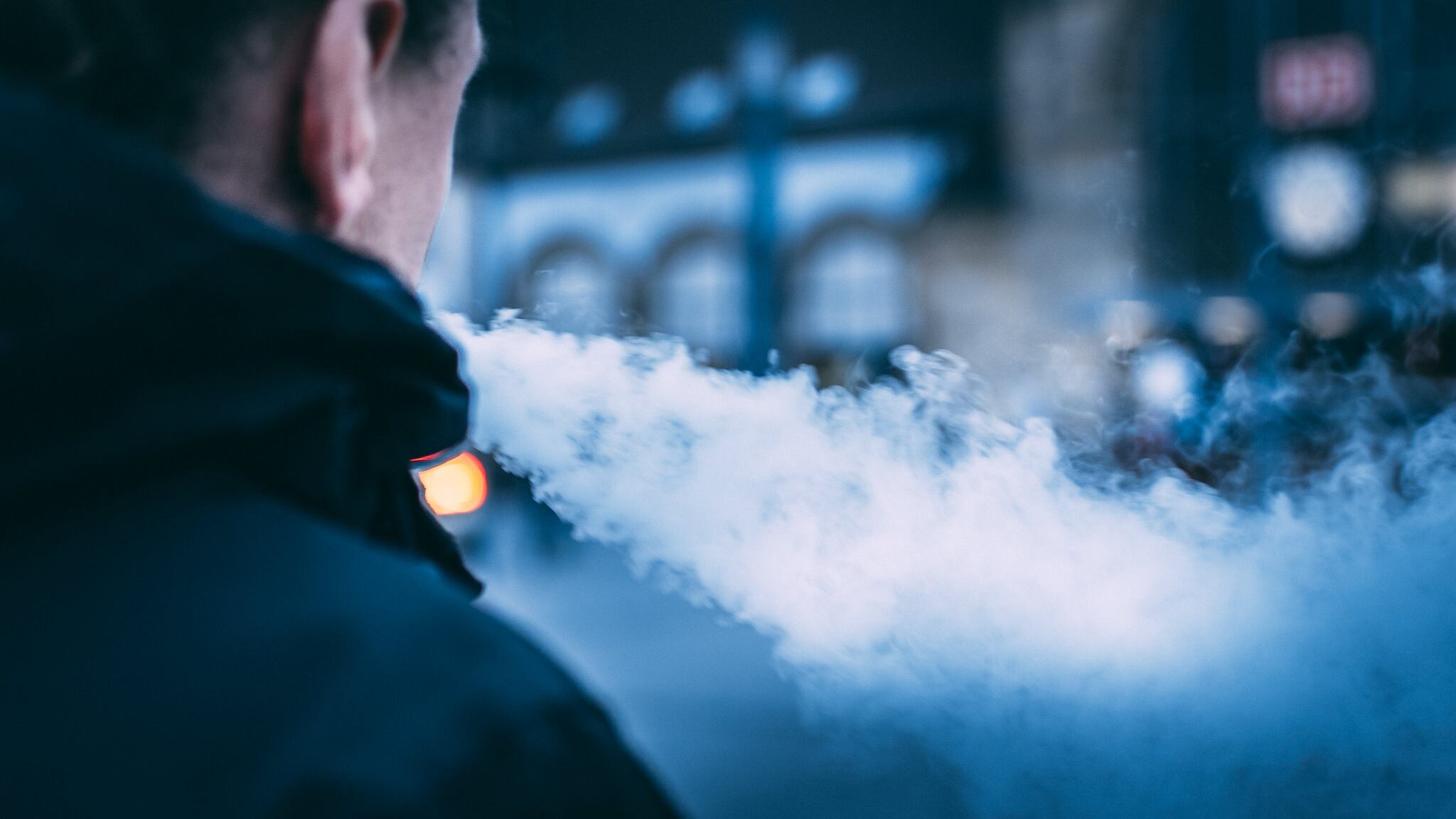A Gresham man believed to be Oregon's second case of respiratory illness linked to vaping tells WW he bought e-cigarette pods from storefronts—and wasn't regularly vaping cannabis.
That adds a new wrinkle to the state investigation of vaporizer pens and the ingredients inside. Much of the regulatory scrutiny has so far fallen on the additives in cannabis vapes. But Justin Wilson says he wasn't using those when he fell ill.
Wilson first spoke to KGW-TV this week. Today, he spoke to WW.
Wilson says he was hanging out with two of his close friends earlier this month when he started having a hard time breathing. Minutes later, he lay unconscious as one friend performed CPR and another called an ambulance.
He spent the next week in the hospital, and for three days he was hooked up to a ventilation machine because his lungs weren't able to breathe independently.
Wilson was a regular e-cigarette user before falling ill. He says he would normally vape e-juice pods that did not contain THC oil.
Wilson recently returned home from the hospital.
He says the doctors told him that e-juice had built up in his lungs. And months of oil build-up, according to his doctor, were the culprit.
Wilson says the doctor told him that there are lipids in everyone's lungs that normally carry fluid out of the body. But Wilson says that "it was such an oily base, so that the lipids were dying in them, so it's trapping all the fluid in your lungs. So you get stuck with them."
Basically, the lipids get weighed down and become too fatty from the oil to move, which inhibited Wilson's breathing.
Wilson works at a vape shop in Gresham called All Stop Pipes and Tobacco. He says e-juice normally contains 70-80% of vegetable glycerin and the rest is mostly propylene glycol—both oils. Nicotine and flavor make up only a small percentage of e-juice.
"The doctor explained to me that when it comes to using a vape device, you have to run it through a coil system, and when you initially go to pull and draw and take your hit from that, that coil doesn't heat up all the way, so you're pulling some of that e-juice into your lungs," Wilson says.
Oils in vape cartridges have come under intense scrutiny during the national hunt to find the culprit of nearly 450 severe respiratory illnesses and at least 6 deaths linked to vaping.
Many speculate that vitamin E acetate, a common dilutant used in vape cartridges on the black market, is to blame.
But Wilson says he has never used black market vape cartridges, and he seldom used cartridges filled with THC oil. He says the very few times he did use a vape cartridge containing the THC oil, he bought it from a licensed cannabis shop.
"I would almost never smoke the THC cartridges, and even when I did I used cartridges from dispensaries," says Wilson.
Four ingredients were listed on the non-THC containing e-cigarette pods that Wilson would regularly inhale in his Juul: Vegetable glycerin, propylene glycol, nicotine and flavor.
Others say the oils in cartridges sold in vaping shops—like vegetable glycerin in Wilson's Juul pods—could be just as dangerous as Vitamin E acetate.
Erin Purchase, who owns a dispensary in Pendleton called Kind Leaf, told WW that she has her doubts about vape cartridges that list only "natural and artificial flavors" on their labels without elaborating on what ingredients go into those flavors.
She told WW she pulled 15 of the 28 vape cartridge brands off the store's shelves because of the ambiguous labeling.
"The retailer does not even have access to the 'proprietary' ingredients or the methods behind the extraction done by the processor," Purchase says.
Though the Oregon Liquor Control Commission is privy to the ingredients that constitute "flavor" in products when the products go through a submission process with the agency, manufacturers aren't required to divulge the ingredients to retailers.
Wilson's e-juice pods he normally used lists "flavor" under the ingredients.
He guesses it's probably "syrup, extract, some cheap stuff" in flavorings.
Wilson says he never bought any vaping products off of the internet, but knows a few of his friends occasionally sell black market cartridges with THC that they build themselves as a "side hustle."
He thinks his friends probably cut the THC oil with dilutants, and says the cartridges are much cheaper than the ones sold in cannabis shops.
"I know those guys were my friends, but I mean you never really know with those. They could be cutting it with something else to spread their product further along. Makes sense to me," Wilson says.
Wilson says his near-death experience has scared him away from vaping ever again. But he also says he could've been the perfect candidate for a respiratory illness due to vaping: He was born premature and his lungs never completely finished developing, and he had asthma when he was younger.
"I guess it could've been 'the perfect cocktail,'" Wilson says.
